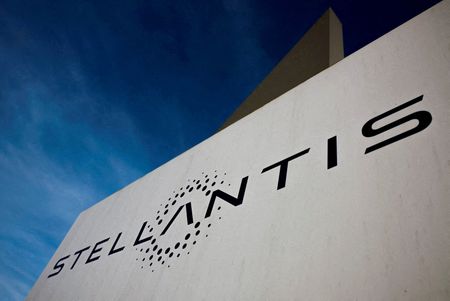By Jesús Aguado, David Latona and Joan Faus
MADRID/BARCELONA (Reuters) -A possible move by Spanish bank Sabadell to return its headquarters to Catalonia would be a boost for the region after years of political turmoil, Socialist regional leader Salvador Illa said on Wednesday.
Sabadell will discuss moving its legal headquarters from Alicante at a board meeting this afternoon, it said, having cited the bank’s importance to the regional economy as a reason for investors to reject a hostile takeover bid from rival BBVA.
If Sabadell returned its legal headquarters to Catalonia, it would be the first big company to do so after thousands left in the wake of a failed independence bid in October 2017.
“This is good news, and I think it confirms that we are on the right path towards institutional stability and legal security,” Illa told reporters.
Last year, Illa – from Prime Minister Pedro Sanchez’s Socialist Party – became head of the Catalan government, ending more than a decade of separatist rule.
A source with knowledge of the matter said there was no reason for Sabadell to stay out of Catalonia as market tensions caused by the independence bid had eased.
The idea to move back to Catalonia has been in the works for months and came from within the bank, another source said. No political parties were involved in the plan, the source said.
Sabadell moved its legal headquarters to Alicante amid uncertainty whether separatists would succeed in a drive for independence. Had Catalonia seceded from Spain, banks in the region would no longer have been supervised by the European Central Bank, whose deposit insurance scheme protects customers.
Sabadell has cited its importance to the Catalan economy in its defence against BBVA, which in April launched a bid then worth more than 12 billion euros ($12.6 billion).
The Spanish government opposes the deal and has said a tie-up could harm Spain’s financial system and impact jobs and customers.
The head of Catalonia’s largest business lobby Foment del Treball, Josep Sanchez Llibre, has long encouraged companies to return to the region.
On Wednesday, he described Sabadell’s potential return as “great news for Catalonia” and predicted others would follow.
The exodus after the 2017 independence bid was a blow to Catalonia’s image as Spain’s economic powerhouse and it has since been overtaken by Madrid as the Spanish region with the highest GDP.
Caixabank also moved its legal headquarters from the region. On Wednesday, a Caixabank spokesperson said its domicile was in Valencia “on an indefinite basis and is not under review”.
GAME OF CHESS
Though it was unclear if the move would have any bearing on BBVA’s bid, analysts said it could be seen as an attempt by Sabadell to shore up government support against a tie-up.
“This is another move in a chess game to gain favour or political support,” said Nuria Alvarez, an analyst at Madrid-based brokerage Renta 4.
The Spanish government cannot stop Sabadell shareholders from swapping their shares for those of BBVA, but it has the power to block a full merger.
At 1443 GMT, Sabadell shares were down 1%, and BBVA’s down 1%.
In November, Spain’s competition watchdog said BBVA’s all-share offer had to undergo a longer antitrust review that could extend the process well into 2025.
A BBVA spokesperson said that it would respect Sabadell’s decision, which would not change the benefits of the deal.
“It (the deal) is good for Spain, for Catalonia and for the rest of the territories where Sabadell is located, as well as for the customers, employees and shareholders of both banks,” BBVA said.
Spain’s Economy minister Carlos Cuerpo said Sabadell’s potential move “makes a lot of sense because the normalisation process that has taken place in Catalonia means that the conditions that led to their departure have disappeared.”
(Reporting by Jesús Aguado, David Latona and Joan Faus; Editing by Inti Landauro, Jan Harvey, Mark Potter and Charlie Devereux)









